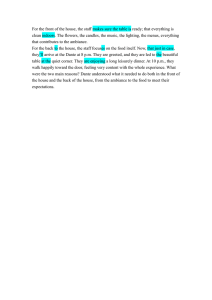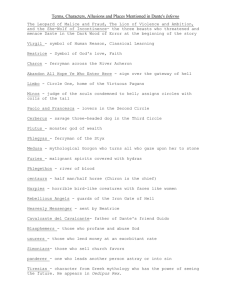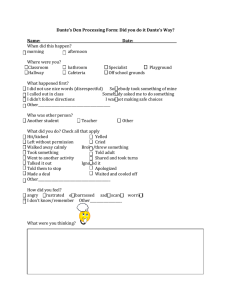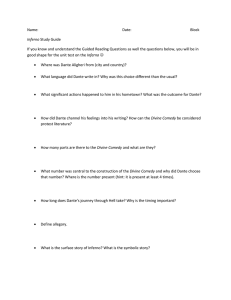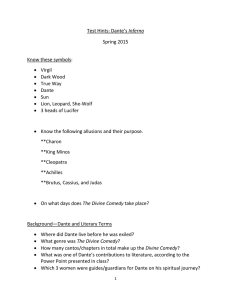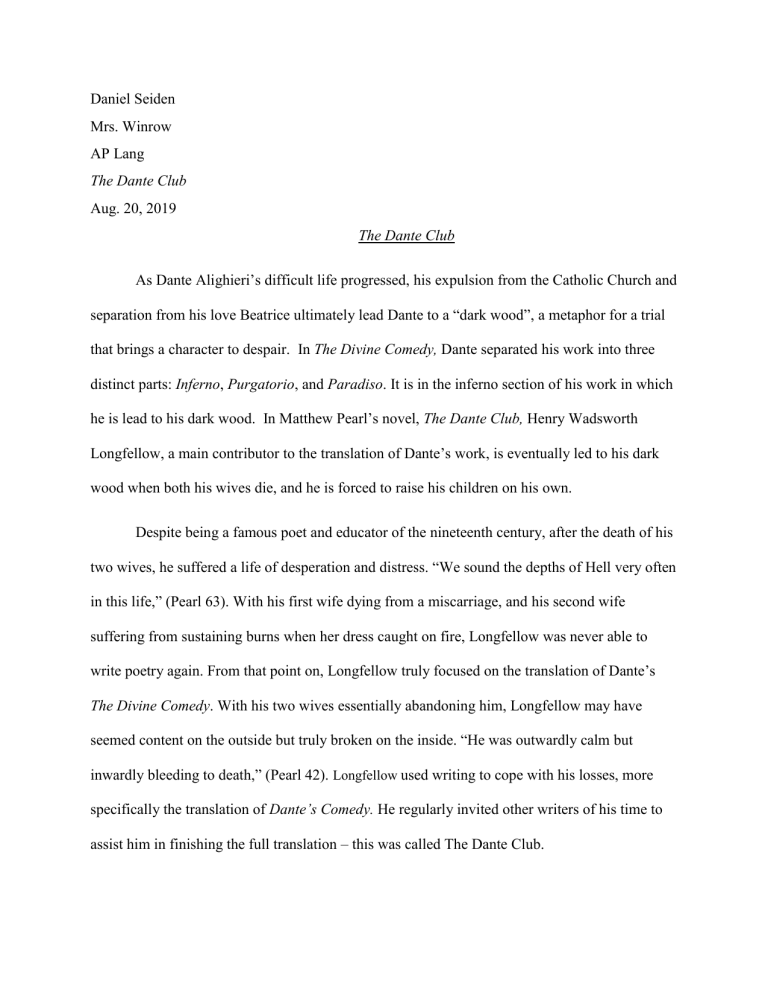
Daniel Seiden Mrs. Winrow AP Lang The Dante Club Aug. 20, 2019 The Dante Club As Dante Alighieri’s difficult life progressed, his expulsion from the Catholic Church and separation from his love Beatrice ultimately lead Dante to a “dark wood”, a metaphor for a trial that brings a character to despair. In The Divine Comedy, Dante separated his work into three distinct parts: Inferno, Purgatorio, and Paradiso. It is in the inferno section of his work in which he is lead to his dark wood. In Matthew Pearl’s novel, The Dante Club, Henry Wadsworth Longfellow, a main contributor to the translation of Dante’s work, is eventually led to his dark wood when both his wives die, and he is forced to raise his children on his own. Despite being a famous poet and educator of the nineteenth century, after the death of his two wives, he suffered a life of desperation and distress. “We sound the depths of Hell very often in this life,” (Pearl 63). With his first wife dying from a miscarriage, and his second wife suffering from sustaining burns when her dress caught on fire, Longfellow was never able to write poetry again. From that point on, Longfellow truly focused on the translation of Dante’s The Divine Comedy. With his two wives essentially abandoning him, Longfellow may have seemed content on the outside but truly broken on the inside. “He was outwardly calm but inwardly bleeding to death,” (Pearl 42). Longfellow used writing to cope with his losses, more specifically the translation of Dante’s Comedy. He regularly invited other writers of his time to assist him in finishing the full translation – this was called The Dante Club. Once Longfellow was left abandoned with the burden of raising his kids, he continued his career in writing. However, he constantly worried that he would go insane. The tragic death of his wife immensely impacted himself as well as his five kids. Longfellow never fully recovered from this event, he even begged fellow writers and friends not to send him to an asylum. However, as he focused more on translating Dante’s work, and less on his personal grief, he learned to accept his life for the way it was. “For after all, the best thing one can do when it is raining is let it rain,” (Pearl 168.) Longfellow realized that not much could be done at this point and he had to accept his dark wood. In the novel The Dante Club, many characters experienced their own dark woods, some worse than others. Longfellow’s dark wood disallowed him to continue his writing career in poetry, however, encouraged him to channel his energy to something that is arguably more important: The Dante Club. Longfellow persevered through his dark wood, a helpless period in which he thought he would never escape. Once he learned to accept and cope with his losses, he essentially became a better human being. He was granted with the right mindset to be a better writer and person.
